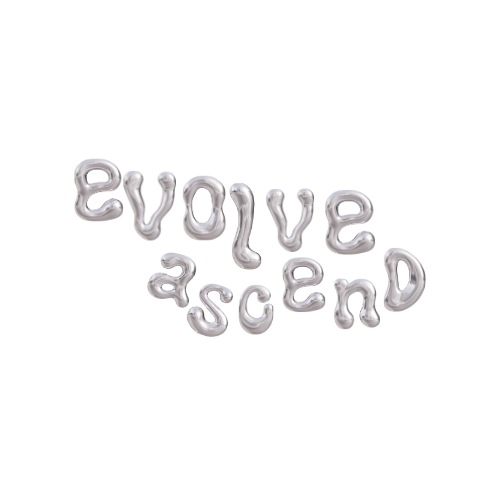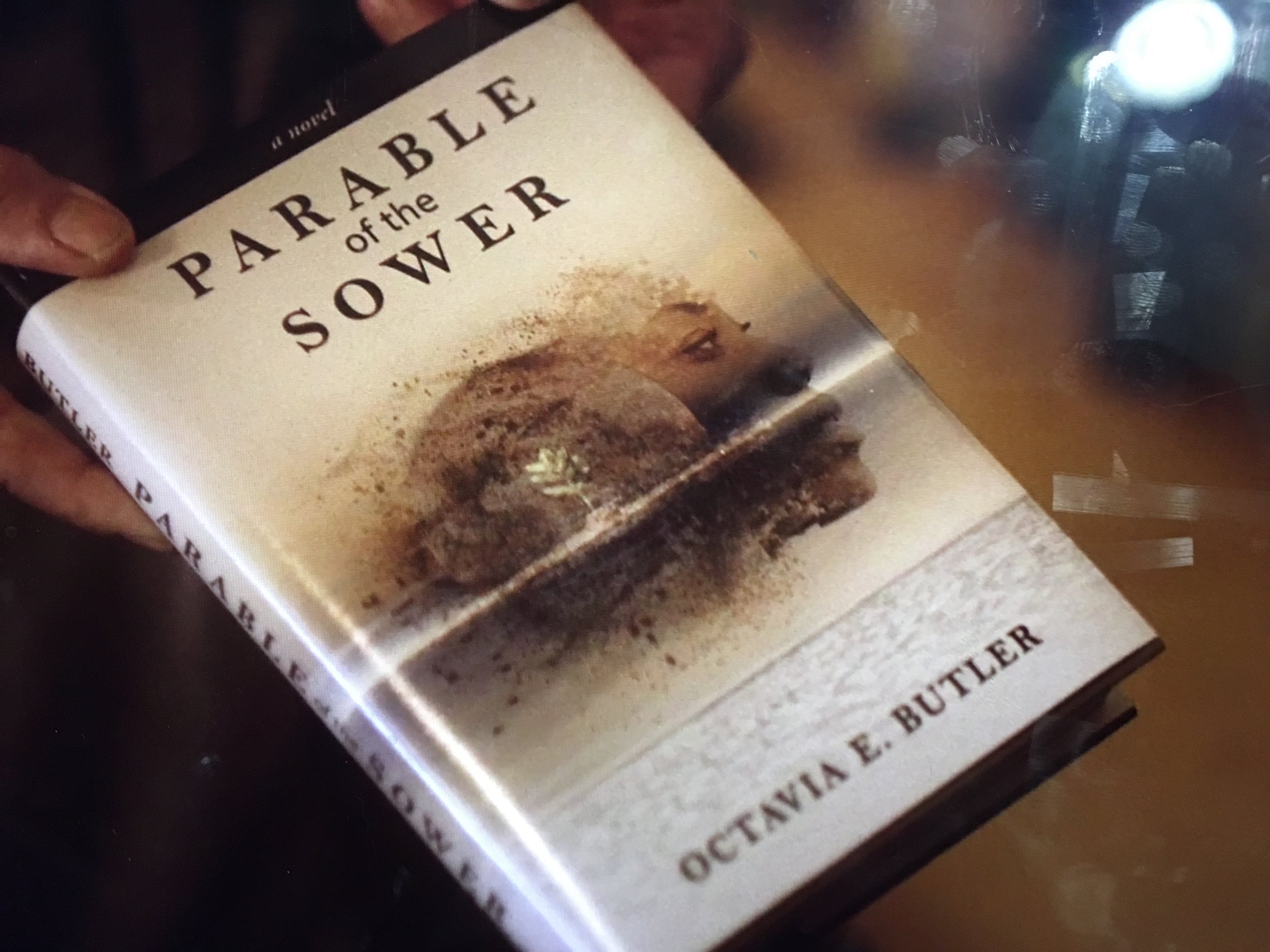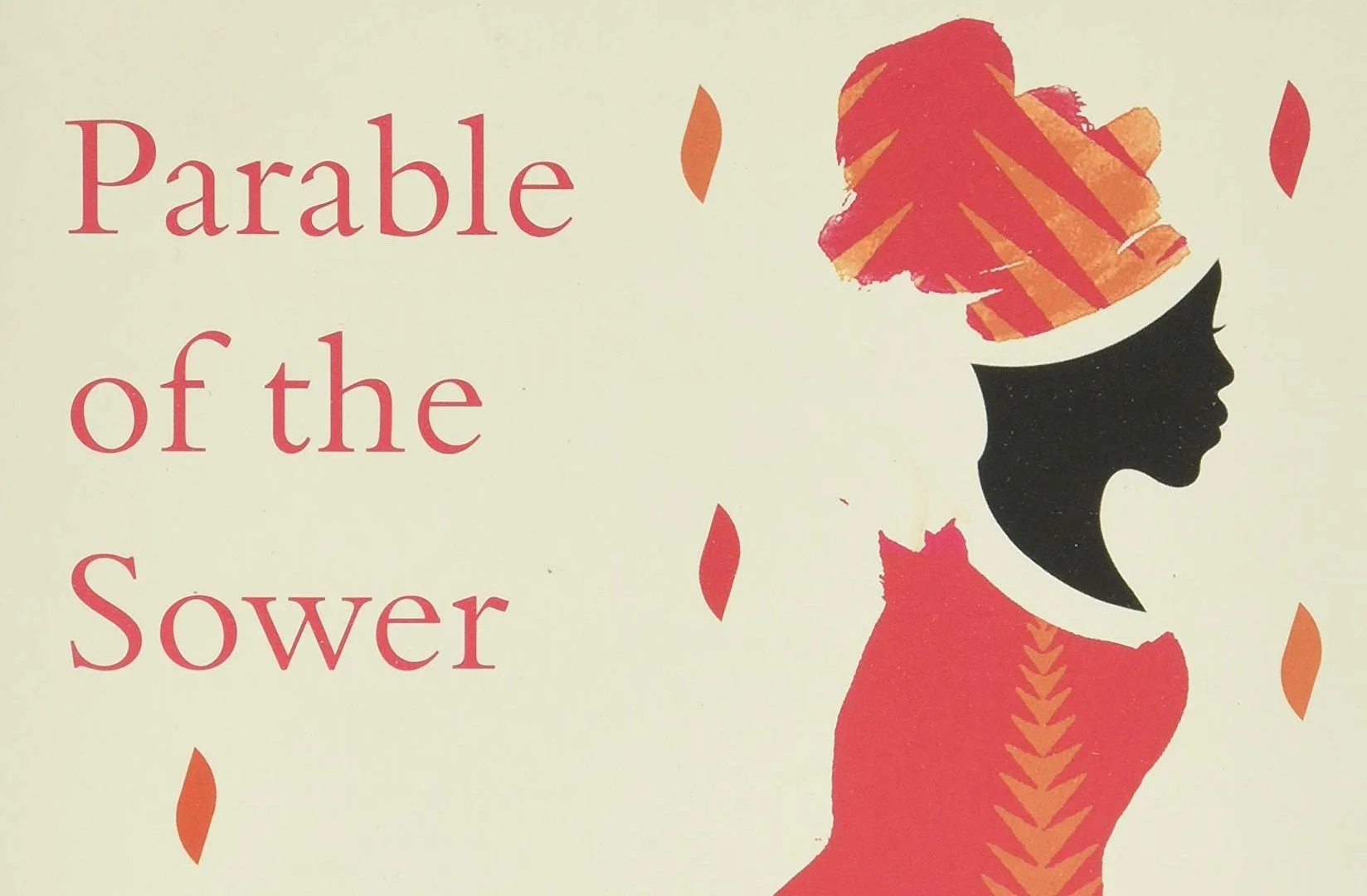The Prescient Wisdom in Octavia E. Butler’s Book, Parable of the Sower (1993)
Octavia E. Butler (1947-2006) was a Black science fiction author widely recognized and respected for her unique and powerful presence within the sci-fi genre.
Born in Pasadena, California, Butler grew up in a modest setting, an only child raised by her mother and grandmother after her father's death. Despite facing dyslexia, Butler's passion for writing and science fiction bloomed early, fueled by a desire to see herself represented in the stories she loved.
A recipient of both the Hugo and Nebula awards, her work is celebrated for exploring themes of race, gender, and humanity through speculative fiction. Butler's remarkable legacy is not only defined by her groundbreaking narrative contributions but also by her role in paving the way for future generations of writers of color in science fiction.
Source: The OA, Season 2, Episode 2 (Treasure Island)
I first heard about Butler’s work, particularly the book Parable of the Sower (1993), during the second episode of the final season of The OA, when it is mentioned in passing during a scene with Kingsley Ben-Adir’s character in a bookstore.
After reading the book, I find it remarkable how Butler's vision of the future resonates with the challenges we face today, from climate change to social inequality, making the novel a prescient reflection on our current times.
The Plot
Set in 2024 amidst a destabilized United States affected by climate change, wealth inequality, and corporate greed, "Parable of the Sower" unfolds through the journal of Lauren Oya Olamina, a teenager with "hyper-empathy." This condition, a result of her mother's drug abuse during pregnancy, makes her acutely feel others' pain. Growing up in a gated community in Robledo, California, Lauren witnesses the collapse of societal norms, with the outside world marked by poverty, violence, and distrust in public services. Despite her father's efforts to maintain order through faith and mutual aid, Lauren foresees the community's doom and prepares to venture north.
As the U.S. crumbles under authoritarian rule and deteriorating labor rights, Lauren develops Earthseed, a belief system that embraces change as divine. Following a brutal attack on her community in 2027, she flees northward with survivors, facing a chaotic world fraught with danger, including rampant poverty, violence, and the resurgence of slavery. Throughout her perilous journey, Lauren spreads the tenets of Earthseed, envisioning humanity's future beyond a dying Earth. Ultimately, she establishes the first Earthseed community, Acorn, setting the foundation for a hopeful, interstellar human destiny. The novel concludes with a reflection on its biblical namesake, emphasizing the resilience and adaptability of the human spirit.
On God:
“All that you touch
You Change.All that you Change
Changes you.The only lasting truth
is Change.God
is Change.”– Octavia E. Butler
This quote encapsulates the inescapable nature of change as a fundamental aspect of existence, underscoring the profound impact of our interactions on ourselves and the environment. It challenges us to recognize our role in shaping and being shaped by the world, presenting change as both a responsibility and an opportunity. Framing change as a divine principle encourages a reflective approach to how we live and adapt, making it a crucial reflection for navigating the complexities of modern life with awareness and intention.
Civilization:
“Civilization is to groups what intelligence is to individuals. It is a means of combining the intelligence of many to achieve ongoing group adaptation. Civilization, like intelligence, may serve well, serve adequately, or fail to serve its adaptive function. When civilization fails to serve, it must disintegrate unless it is acted upon by unifying internal or external forces.”
– Octavia E. Butler
This quote offers a compelling analogy between the role of civilization in collective human achievement and the function of intelligence in personal adaptation. It suggests that the collective intelligence of a group manifested through civilization is key to its ongoing adaptation and survival. However, should civilization fail in this adaptive role, it risks disintegration without the intervention of unifying forces. Thus, it underscores the delicate balance between collective progress and the necessity for adaptability and cohesion within a civilization.
Your Teachers:
“Your teachers
Are all around you.
All that you perceive,
All that you experience,
All that is given to you
or taken from you,
All that you love or hate,
need or fear
Will teach you–
If you will learn.
God is your first
and your last teacher.
God is your harshest teacher:
subtle,
demanding.
Learn or die.”
– Octavia E. Butler
This quote emphasizes the omnipresence of learning opportunities in our lives, suggesting that every aspect of our existence—our experiences, losses, emotions, and even our fears—has something to teach us if only we are open to learning. It presents the concept of God not just as a spiritual figure but as the ultimate teacher, embodying the dual nature of being both a giver of lessons and a strict enforcer of their importance. The ultimatum "Learn or die" highlights the critical necessity of adaptation and growth for survival. Through this lens, Butler challenges us to view our journey through life as a continuous learning process guided by a universe that is relentless, intricate, and unforgiving in its lessons.
Drowning:
“Drowning people
Sometimes die
Fighting their rescuers.:
– Octavia E. Butler
God as a Creative and Destructive Force:
“As wind,
As water,
As fire,
As life,
God
Is both creative and destructive,
Demanding and yielding,
Sculptor and clay.
God is Infinite Potential:
God is Change.“
– Octavia E. Butler
The Non-Dual Nature of God:
“God is neither good nor evil,
neither loving
nor hating.
God is Power.
God is Change.
We must find the rest of what we need
within ourselves,
in one another,
in our Destiny.“
– Octavia E. Butler
The Disintegration of Stability:
“When apparent stability disintegrates,
As it must—
God is Change—
People tend to give in
To fear and depression,
To need and greed.
When no influence is strong enough
To unify people
They divide.
They struggle,
One against one,
Group against group,
For survival, position, power.
They remember old hates and generate new ones,
They create chaos and nurture it.
They kill and kill and kill,
Until they are exhausted and destroyed,
Until they are conquered by outside forces,
Or until one of them becomes
A leader
Most will follow,
Or a tyrant
Most fear.“
– Octavia E. Butler
Power:
“All struggles
Are essentially
power struggles.
Who will rule,
Who will lead,
Who will define,
refine,
confine,
design,
Who will dominate.
All struggles
Are essentially power struggles,
And most are no more intellectual
than two rams
knocking their heads together.“
– Octavia E. Butler
What are your thoughts on Butler's writing? Have you read any of her books or series? Share your comments with us.



